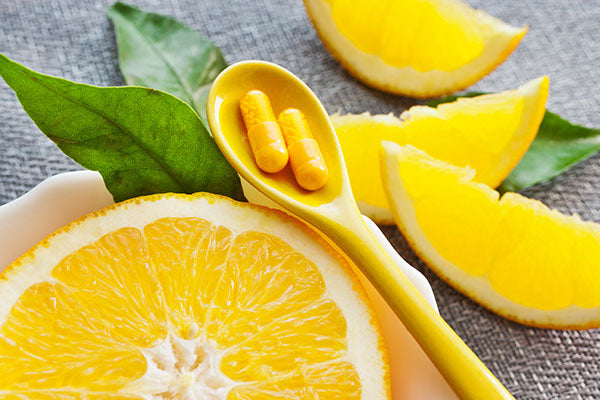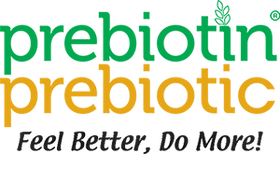Coronavirus and the Importance of a Strong Immune System

What many thought would be a few months of discomfort, has grown into worldwide pandemic that continues to rage. A year later, we are still facing lockdowns, financial hardship, and grief, both at lost loved ones, and those who are locked out of our lives.
Currently, in the U.S. we have documented 28,599,137 cases, with 507,500 deaths (as of February 19). Less publicized are the thousands of survivors who continue to have symptoms. Researchers have found more than 75% of people who were hospitalized continue to have symptoms, from fatigue and muscle aches, to brain fog and loss of taste and smell.
While many are hopeful that vaccines will end the pandemic, only one in 10 Americans have gotten one dose of the vaccination. Limited supplies and distribution concerns, new virus mutations, and anti-vaccination opposition groups are all contributing to a muddy picture of how the pandemic will end.
As the pandemic has worsened, more researchers are examining the link between the microbiome and the severity of symptoms as well as COVID-19 infection risk.
As the United States and other countries look for global solutions, we may be heartened by recent studies that focus on nutritional approaches to the virus that we can immediately access. In a 2021 study, a group of scientists at the Chinese University of Hong Kong found that patients who were ill with COVID-19 had an unhealthy balance of bacteria in their gut compared to patients who were uninfected. The researchers concluded that the mix of bacteria in the gut of these patients was linked to the severity of the disease and the persistence of symptoms.
The same group of researchers also completed a pilot study where they developed an “immunity formula” based on probiotic bacteria. Patients who received this formula achieved “complete symptom resolution.”
Promising approaches
Research that links an unhealthy microbiome to higher disease risk and severity of symptoms is not new. We have decades of scientific studies that indicate a healthy microbiome improves our immunity to diseases like cancer and diabetes and can impact how ill we become.
“In the last 20-30 years, research has demonstrated a strong link between disease risk and the condition of the microbiome,” says Dr. F. Wilson Jackson, Prebiotin Medical Director. “Based on these studies, examining the link between the balance of bacteria in the gut and vulnerability to a virus like COVID-19 is a promising approach.”
As the pandemic has worsened, more researchers are examining the link between the microbiome and the severity of symptoms as well as COVID-19 infection risk. It is still unclear if the disease itself (and some of the medications used to treat the virus) cause the microbiome to deteriorate or if a poor mix of bacteria makes us more vulnerable to being infected in the first place—and having long-term symptoms. More research is needed.
The link between gut bacteria and COVID-19
However, scientists studying COVID-19 and the microbiome seem to agree on a future where we can strengthen our immunity to diseases like the coronavirus by improving our gut microbiome. The following is just a sample of quotes from researchers who are currently examining these links between the type of bacteria in the gut and COVID-19 vulnerability:
The elderly: “Gut microbiota diversity is decreased in old age and Covid-19 has been mainly fatal in elderly patients which again points to the role the gut microbiota may play in this disease. Improving gut microbiota profile by personalized nutrition and supplementation known to improve immunity can be one of the prophylactic ways by which the impact of this disease can be minimized in old people and immune-compromised patients.” (Dhar, Mohanty, August 2020)
Preventative and therapeutic strategies: “The gut microbiome plays a significant role in human health and disease states, and could play a significant role in the interplay between COVID-19 infection and the host. Microbiome studies may help our understanding of the pandemic and furthermore provide insights into preventative and therapeutic strategies.” Segal, Mak, Mullish, November 24, 2020)
Leaky Gut and COVID-19 severity: “While the following remains to be empirically demonstrated, accumulating evidence supports the hypothesis that an altered gut microbiota and an associated leaky gut may contribute to the onset of coronavirus disease 2019 (COVID-19)-related gastrointestinal symptoms, such as diarrhea and, in severe cases, multiorgan complications.” (Kim, HS, 2020)
From these studies, we can assume that building a microbiome with healthy bacteria colonies is a beneficial step to reduce COVID-19 risk, while we continue standard CDC protocols, from wearing a mask when necessary and social distancing whenever possible, to avoiding large gatherings.
Simple lifestyle changes to improve our immune system

A good start is regular sleep and moderate exercise (30 minutes a day or about 2.5 hours per week)—even 10-minute increments of exercise can help.
And we can focus on nutrition that builds our immunity.
There are “no magical foods or pills” that offer guaranteed protection against COVID-19, says Penn State Abington nutrition instructor Wendy Richman, M.A., R.D. She does share the science behind foods that can decrease inflammation and strengthen your immune system. Richman lists vitamins A, C, and D, as well as zinc and protein. For details, read, “Abington nutritionist shares science behind nutrition.”
Vitamin D, the sunshine vitamin
Start with making sure you are getting enough vitamin D. Recently a U.S. representative introduced a House Resolution to recognize the significant role vitamin D may play in the fight against COVID-19. This action is based on numerous studies that have examined the link between vitamin D deficiency and infection risk. A November 2020 article that provides a summary of recent related research concludes: “A vitamin D concentration insufficiency increased hospitalization… and mortality from COVID-19…We observed a positive association between vitamin D deficiency and the severity of the disease.”

It’s easy to get your daily dose of vitamin D, from a short walk in the sunshine, to foods like salmon, spinach, and fortified yogurt or oatmeal. Or just take a supplement, based on your doctor’s recommendation. With enough D, you get the added benefit of improving calcium absorption and keeping your bones strong.
Breathe easy with Vitamin C
Vitamin C has been studied for decades, especially since Dr. Linus Pauling focused the nation’s attention on the benefits of vitamin C in the 70s. More recent research has confirmed that we all benefit from more C in our diets.
In a December 2020 research article in the Journal of Global Antimicrobial Resistance, the authors write the following about vitamin C in the prevention and therapy of coronavirus infection:

“Application of a high dose of vitamin C can dramatically reduce the need for treatment with high doses of corticosteroids, antibacterials and antiviral drugs. Vitamin C also can be effective for primary prevention of viral infections by boosting the innate immune response. In infected patients, vitamin C therapy may shorten the disease course and prevent complications of the disease.”
Why we love fiber
Another essential ingredient in a healthy diet that nurtures a healthy immune system is prebiotic fiber. “Studies demonstrate that a diet high in fiber from whole foods, especially brightly colored fruits and vegetables, are key to disease prevention and immune health,” says Leigh Greathouse, PhD, MPH, MS, RD, an Assistant Professor in Nutrition Sciences at Baylor University and director of the Didactic Program in Dietetics.

Foods high in prebiotic fiber, include dandelion greens, asparagus, unripe bananas, apples, Jerusalem artichokes, onions and garlic, and chicory root. Check out our Prebiotics and Probiotics page for more foods that pack prebiotic fiber into each bite. Load up on these foods because we need at least 25 to 35 grams of fiber each day. The average American only gets about 15 grams.
Why is our diet so low in fiber?
Unfortunately, we consume too many processed foods that are low in fiber, from cheese doodles to frozen dinners. Processed foods like these are especially damaging because of added dyes, artificial flavoring, preservatives, and other chemicals, as well as sodium, sugar, and saturated fats added during the manufacturing process.
Researchers link these foods to the increase in chronic diseases like heart disease and diabetes, as well as spiraling obesity rates. Instead, a diet that focuses on fresh fruits and vegetables, and limits sugar, meat, alcohol, and processed foods can help strengthen our immunity.
How does prebiotic fiber help boost our immunity?
Up to 80% of the entire immune system makes its home in the gut microbiome. This “organ” includes the trillions of microbes and more than 2,000 different species of bacteria that live in our intestines. Fortunately, whole foods high in prebiotic fiber feed the beneficial bacteria we want to flourish in our gut.
“Having a healthy immune system is directly linked to the diversity and function of your gut bacteria.”
– Leigh Greathouse, PhD, MPH, MS, RD, an Assistant Professor in Nutrition Sciences at Baylor University and director of the Didactic Program in Dietetics
With a healthy balance of desirable bacteria, like lactobacillus and bifidobacteria, we reduce our risk of illness from the viruses and pathogens we encounter in our daily lives. If we have an unhealthy gut, we are more at risk for infections, including the coronavirus. Since the elderly and those with serious medical conditions often have poor gut health, it is not surprising that they are at a higher risk for contracting COVID-19.
The following video explains the link between fiber and a healthy microbiome.
Your Immune System: A Video by Dr. Frank Jackson, Prebiotin Founder
What if I can’t eat enough foods with prebiotic fiber?
If you can’t get enough fiber in your daily diet to keep your immune system strong, a daily dose of Prebiotin® Prebiotic Fiber can help. Dr. Greathouse, who has studied the impact of prebiotic fiber on the microbiome at Baylor University, explains, “Having a healthy immune system is directly linked to the diversity and function of your gut bacteria. While whole foods should always be the first choice, prebiotic fiber supplements like Prebiotin may improve the ability of your gut bacteria to support a healthy immune system.”
Prebiotin is an affordable, long-term solution to an improved microbiome that supports your immune system. By taking Prebiotin, you also support your gut after a course of antibiotics and other drugs that kill beneficial as well as undesirable bacteria.
Goodbye “COVID Curves”
A daily dose of Prebiotin can also help you if you’ve developed “COVID Curves,” those extra pounds you’ve gained after sitting in your home binge watching Netflix for the last year. Scientific studies demonstrate that a high quality prebiotic fiber like Prebiotin can help you melt away those extra pounds in a healthy daily routine that includes whole foods and exercise.
Depression rates have tripled
A recent Jama study found during the pandemic, depression has tripled in US adults in all

demographic groups—especially in those with financial worries. If you’ve had previous major traumatic events, your risk of depression is even higher. A 2020 article in Lancet, explains that the pandemic has caused a “parallel epidemic in fear, anxiety, and depression.”
People already depressed may experience more intense symptoms, and those who need help may face additional barriers to accessing timely health services.
Taking Prebiotin may help. Numerous research articles demonstrate that supplementing with prebiotic fiber can improve the microbiome and improve brain function, including reducing depression risk. [For more information about how our microbiomes affects brain function, check out the Prebiotin blog, “Two Brains? The Answer to Treating My Depression May Be in my Gut.”]
No one can make a claim that any product or medicine will prevent you from getting the virus or cure you. However, we do know that a healthy gut improves your immunity to all kinds of illnesses, including those caused by viruses and bacteria. As we continue to linger in our homes and hesitate to hug loved ones and friends, we are not powerless against this deadly illness. By building a healthy microbiome, we can start today to improve our immunity and reduce our risk for a wide range of illnesses that just may include COVID-19.
A Hundred Years of Pandemics

When people think about pandemics, most of us focus on the Black Death (the bubonic plague) that defined the Middle Ages. This terrifying disease caused the death of about 50 million people, or 60% of Europe’s entire population in the 14th century.
But even in the last 100 years, we have had numerous pandemics with a global reach:
- Flu of 1918 – took the lives of 20 to 50 million people worldwide, with a death rate of 10 to 20%.
- The Asian flu – lasted from 1956-58, with 2 million deaths.
- The “Hong Kong” flu of 1968 – had a death toll of 1 million.
- HIV/AIDS pandemic – (at its peak, 2005-2012) caused the death of at least 36 million Currently, about 35 million are still living with HIV, mostly in Sub-Saharan Africa.
- COVID-19 – has caused 2,462,179 deaths worldwide in about a year (as of February 19, 2021).
How the COVID-19 pandemic will end is impossible to predict. But we can learn from other pandemics in our history and take comfort in one hopeful outcome. Despite all of the horrors that threaten our existence, humankind has survived.
To Track the Impact of the Coronavirus:
References
- Almeida A, Mitchell AL, Boland M, et al. A new genomic blueprint of the human gut microbiota. 2019 Feb. 11; 568: 499–504.
- Baker, Sam. About 10% of Americans have gotten a coronavirus vaccine. Feb. 8, 2021.
- Bolen, Barbara. What Are Prebiotics? Verywellhealth. Updated on June 21, 2020. Accessed Feb. 15, 2021. .
- People at Increased Risk. National Center for Immunization and Respiratory Diseases (NCIRD), Division of Viral Diseases. Last Updated Jan. 4, 2021. Accessed Feb 12, 2021.
- Daniells S. House Resolution Aims to recognize vitamin D’s benefits for COVID-19. NUTRAingredients-USA.com. Last updated Feb. 18, 2021.
- Dhar D, Mohanty A. Gut microbiota and Covid-19-possible link and implications. Virus Research. 2020 August; Vol 285.
- Ettman CK, Abdalla SM, Cohen G, et al. Prevalence of Depression Symptoms in US Adults Before and During the COVID-19 Pandemic. JAMA Netw Open. 2020 Sept. 2;3(9):e2019686. doi:10.1001/jamanetworkopen.2020.19686.
- Hoang BX, Shaw G, Fang W, et al. Possible application of high-dose vitamin C in the prevention and therapy of coronavirus infection. J Glob Antimicrob Resist. 2020 Dec; 23: 256–262. Published online 2020 Oct 13.
- Kim S. Do an Altered Gut Microbiota and an Associated Leaky Gut Affect COVID-19 Severity? mBio. 2021. DOI: 10.1128/mBio.03022-20/.
- Lapid N. Gut bacteria tied to disease severity, immune response; high mental health toll seen in ICUs. Reuters. 2021 Jan 13. .
- Linus Pauling Institute. Linus Pauling Biography. Oregon State University. Accessed February 17, 2021.
- NDTV Food Desk. Prebiotics For Weight Loss: How Prebiotic Fibre Can Help You In Reducing Body Fat. NDTV Food. Updated: February 22, 2019. Accessed Feb. 12, 2021.
- Nutrition Source. Processed Foods and Health. Harvard T.H. Chan School of Public Health. 2021. Accessed Feb.12, 2021.
- Pereira M, Damascena AD, Mirella L, et al. Vitamin D deficiency aggravates COVID-19: systematic review and meta-analysis. Crit Rev Food Sci Nutr. 2020 Nov 4;1-9. doi: 10.1080/10408398.2020.1841090. Online ahead of print.
- Pujari R. Banerjee G. Impact of prebiotics on immune response: from the bench to the clinic. Immunol Cell Biol. 2020 Sep 30. doi: 10.1111/imcb.12409. Online ahead of print.
- Richman, Wendy. Abington nutritionist shares science behind nutrition. Penn State News. 2021 Feb. 19.
- Ries, Julia. Over 75% of People Hospitalized With COVID-19 Had Symptoms 6 Month Later. Healthline. Jan. 14, 2021.
- Segal JP, Mak JWY, Mullish BH, et al. The gut microbiome: an under-recognised contributor to the COVID-19 pandemic? Therapeutic Advances in Gastroenterology. 2020 Nov. 24.
- Outbreak. 10 of the Worst Pandemics in History. MPH Online. 2021. Accessed Feb. 11, 2021.
- Yao H, Chen J-H, Xu Y-F. Patients with mental health disorders in the COVID-19 epidemic. The Lancet Psychiatry. 2020 April 1; 7(4), e21.
- Yoo BB, Mazmanian SK.The Enteric Network: Interactions between the Immune and Nervous Systems of the Gut. Immunity. 2017 Jun 20;46(6):910-926. doi: 10.1016/j.immuni.2017.05.011
- Zuo T, Zhang F, Lui GCY, et al. Alterations in Gut Microbiota of Patients With COVID-19 During Time of Hospitalization. Gastroenterology. 2021 Sept. 1; 159 (3): 944-955.e8.






